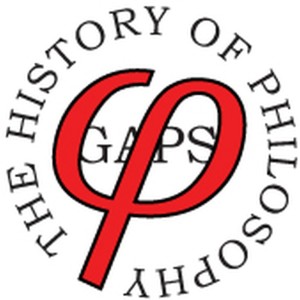Episodes

Sunday Jun 22, 2025
HoP 472 Less Cheer, More Knowledge: Descartes’ Ethics
Sunday Jun 22, 2025
Sunday Jun 22, 2025
Descartes’ “provisional” morality and his views on free will and virtue.

Sunday Mar 30, 2025
HoP 466 Well Hidden: Descartes’ Life and Works
Sunday Mar 30, 2025
Sunday Mar 30, 2025
How René Descartes’ understanding of his own intellectual project evolved across his lifetime.

Sunday Mar 16, 2025
HoP 465 Modern Times: France and the Netherlands in the 17th Century
Sunday Mar 16, 2025
Sunday Mar 16, 2025
A look at the political and religious ferment that made up the historical context of philosophy in 17th century France and the Netherlands.

Sunday Feb 02, 2025
HoP 462 Freedom to Philosophize: Introduction to Early Modern Philosophy
Sunday Feb 02, 2025
Sunday Feb 02, 2025
What is Enlightenment, anyway?

Sunday Jan 19, 2025
HoP 461 - Eileen Reeves on Galileo and the Telescope
Sunday Jan 19, 2025
Sunday Jan 19, 2025
We finish our look at philosophy in the Reformation era with an interview about Galileo's use of a revolutionary technology: the telescope.

Sunday Jan 05, 2025
HoP 460 - Trial and Error - Galileo and the Inquisition
Sunday Jan 05, 2025
Sunday Jan 05, 2025
The philosophical issues at the heart of the notorious condemnation of Galileo and Copernican astronomy.

Sunday Dec 22, 2024
HoP 459 - Cardinal Rule - Robert Bellarmine
Sunday Dec 22, 2024
Sunday Dec 22, 2024
Though most famous for his role in persecuting Galileo, Robert Bellarmine was a central figure of the Counter-Reformation, especially in his political thought.

Sunday Dec 08, 2024
HoP 458 - Outsider Philosophy - The Cheese and the Worms
Sunday Dec 08, 2024
Sunday Dec 08, 2024
Carlo Ginzburg’s innovative historical study The Cheese and the Worms looks at the ideas of an obscure 16th century miller, suggesting how popular culture might be integrated into the history of philosophy.

Sunday Nov 24, 2024
HoP 457 - Take Your Medicine - Oliva Sabuco and Camilla Erculiani
Sunday Nov 24, 2024
Sunday Nov 24, 2024
Natural philosophy and medicine in the work of two unorthodox thinkers of the late sixteenth century, both of them women.

Sunday Nov 10, 2024
HoP 456 - Touch Me With Your Madness - Cervantes’ Don Quixote
Sunday Nov 10, 2024
Sunday Nov 10, 2024
Why do critics consider Don Quixote the first “modern” novel, and what does it tell us about the aesthetics of fiction?

Sunday Oct 27, 2024
HoP 455 - Tom Pink on Francisco Suárez
Sunday Oct 27, 2024
Sunday Oct 27, 2024
We're joined by Tom Pink, who tells us about Suárez on ethics, law, religion, and the state.

Sunday Oct 13, 2024
Sunday Oct 13, 2024
Suárez and other Iberian scholastics ask where political power comes from and under what circumstances it is exercised legitimately.

Sunday Sep 29, 2024
HoP 453 - The Price is Right - Law and Economics in the Second Scholastic
Sunday Sep 29, 2024
Sunday Sep 29, 2024
Vitoria, Molina, Suárez and others develop the idea of natural law, exploring its relevance for topics including international law, slavery, and the ethics of economic exchange.

Sunday Sep 15, 2024
HoP 452 - Better Than Nothing - Metaphysics in the Second Scholastic
Sunday Sep 15, 2024
Sunday Sep 15, 2024
Did the metaphysics of Francisco Suárez mark a shift from traditional scholasticism to early modern philosophy?

Sunday Sep 01, 2024
HoP 451 - Could’ve, Would’ve, Should’ve - Free Will in the Second Scholastic
Sunday Sep 01, 2024
Sunday Sep 01, 2024
What was Luis de Molina trying to say about human free will with his doctrine of “middle knowledge,” and why did it provoke such controversy?

Sunday Jul 21, 2024
Sunday Jul 21, 2024
To celebrate reaching 450 episodes, Peter looks at the philosophical resonance of two famous artworks from the turn of the 16th century: Dürer’s Self-Portrait and Michelangelo’s paintings in the Sistine Chapel.

Sunday Jul 07, 2024
HoP 449 - Anna Tropia on Jesuit Philosophy
Sunday Jul 07, 2024
Sunday Jul 07, 2024
We learn from Anna Tropia how Jesuit philosophy of mind broke new ground in the scholastic tradition.

Sunday Jun 23, 2024
HoP 448 - Secondary Schools - Iberian Scholasticism
Sunday Jun 23, 2024
Sunday Jun 23, 2024
The “School of Salamanca,” founded by Francisco Vitoria, and the commentators of Coimbra are at the center of a movement sometimes called the “Second Scholastic.”

Sunday Jun 09, 2024
HoP 447 - Andrés Messmer on Spanish Protestantism
Sunday Jun 09, 2024
Sunday Jun 09, 2024
Yes, there were Spanish Protestants! Andrew (Andrés) Messmer joins us to explain how they drew on humanism and philosophy to argue for their religious agenda.

Sunday May 26, 2024
HoP 446 - Not Doubting Thomas - the Aquinas Revival
Sunday May 26, 2024
Sunday May 26, 2024
Cajetan, Bañez and other thinkers make Aquinas a central figure of Counter-Reformation thought; we focus on their theories about analogy and the soul.

